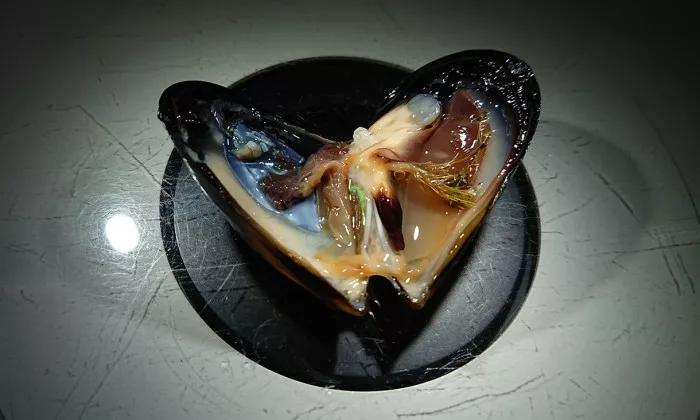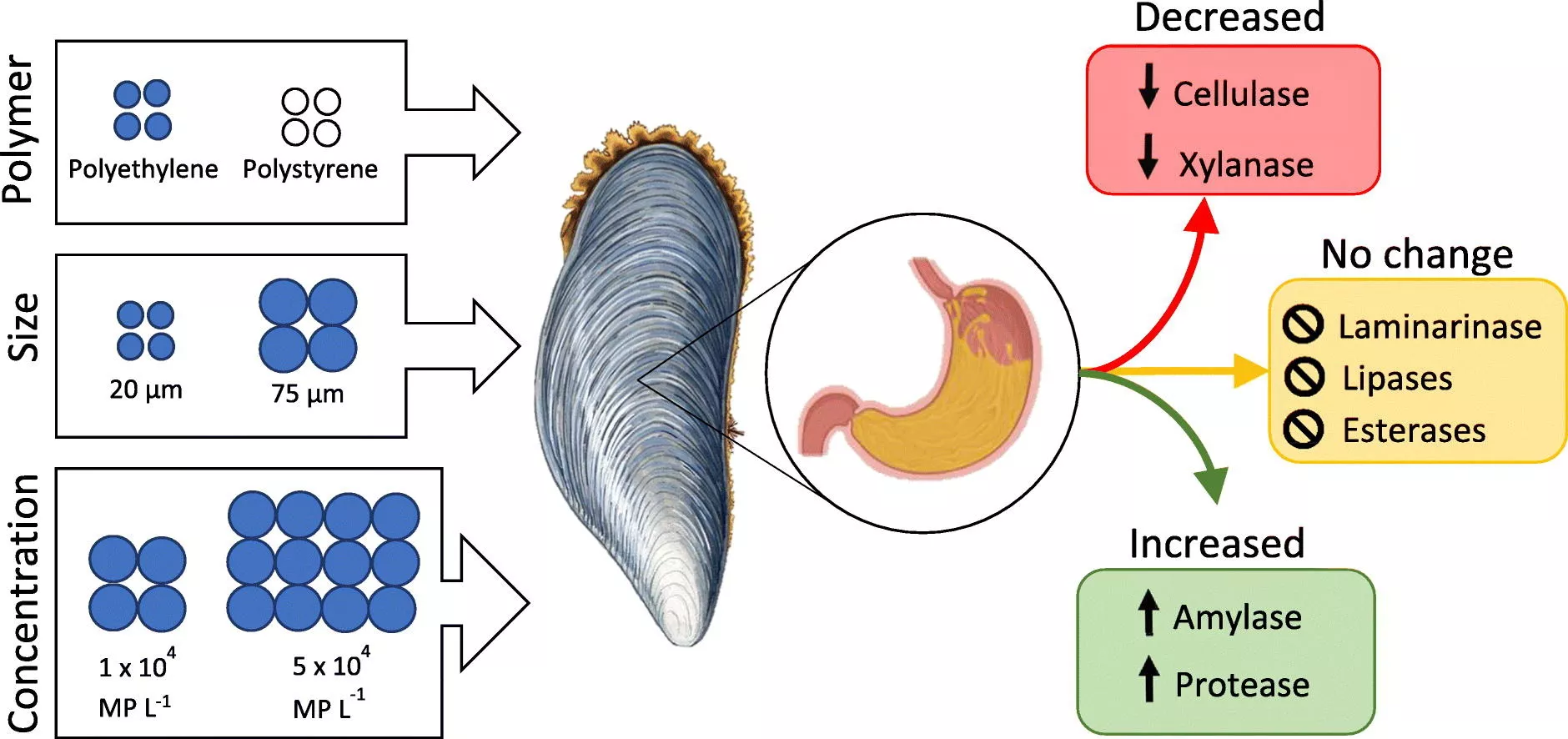
In a recent study, a team from the Royal Melbourne Institute of technology in Australia first collected Mytilus galloprovincialis from Philip harbor near Melbourne. The mussels were placed in a water tank in the laboratory. The water contained micro plastic beads of different concentrations, similar to those used in cosmetics.

When mussels were subsequently analyzed, it was found that the ingested plastics had a negative effect on the function of the four key digestive enzymes of this organism. Therefore, it is difficult for them to convert the starch in their natural food into monosaccharides, which are needed for their growth.
Lead scientist Dr Charlene Trestrail said: "we don't think that plastic will directly affect mussels, but it does reduce their ability to digest real food in their intestines, which means that they miss energy and nutrients."
More importantly, Trestrail believes that the lack of food and energy may hinder the mating ability of mussels, which may lead to a decline in their numbers. This decline may have an impact on the entire ecosystem.
Trestrail said, "we know a lot about the external effects of plastic on animals - we have seen pictures of birds and turtles entangled in plastic - but now we know more about the role of plastic inside.
A recent paper published in science of the total environment described this study. A previous study conducted by scientists at the University of Anglia Ruskin in the UK showed that the intake of micro plastics would also weaken the fibers used by mussels to attach to rocks.